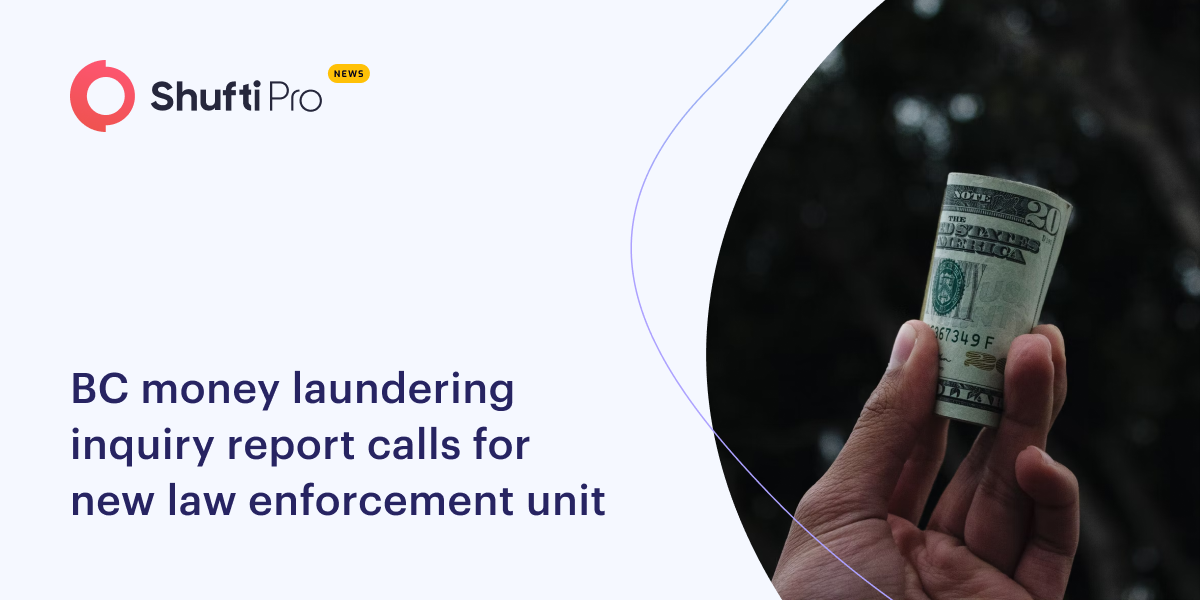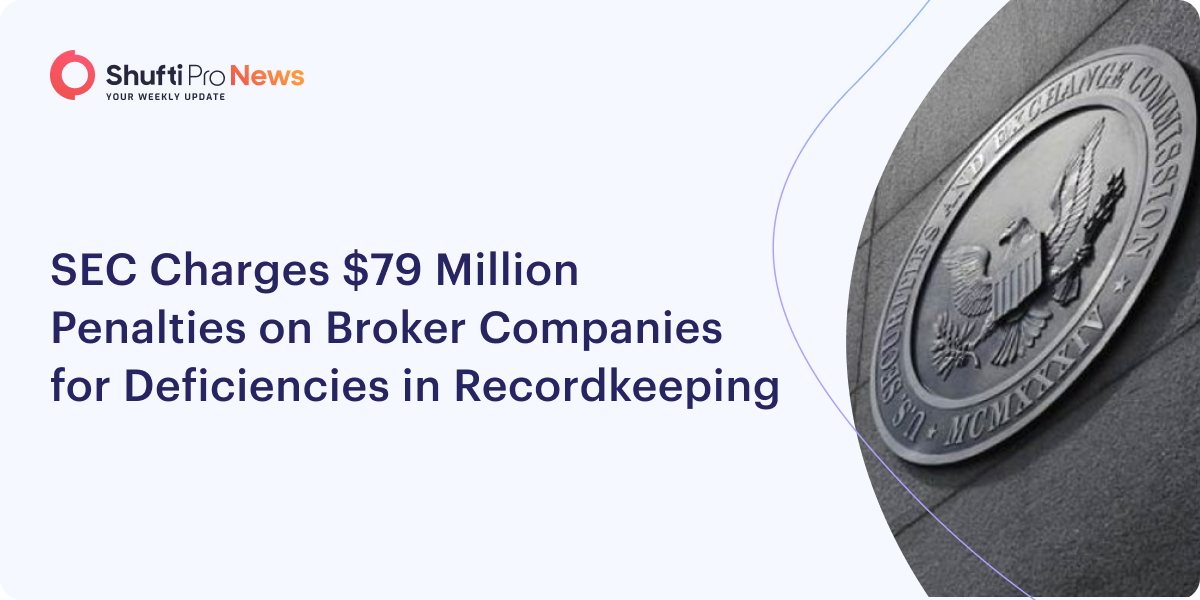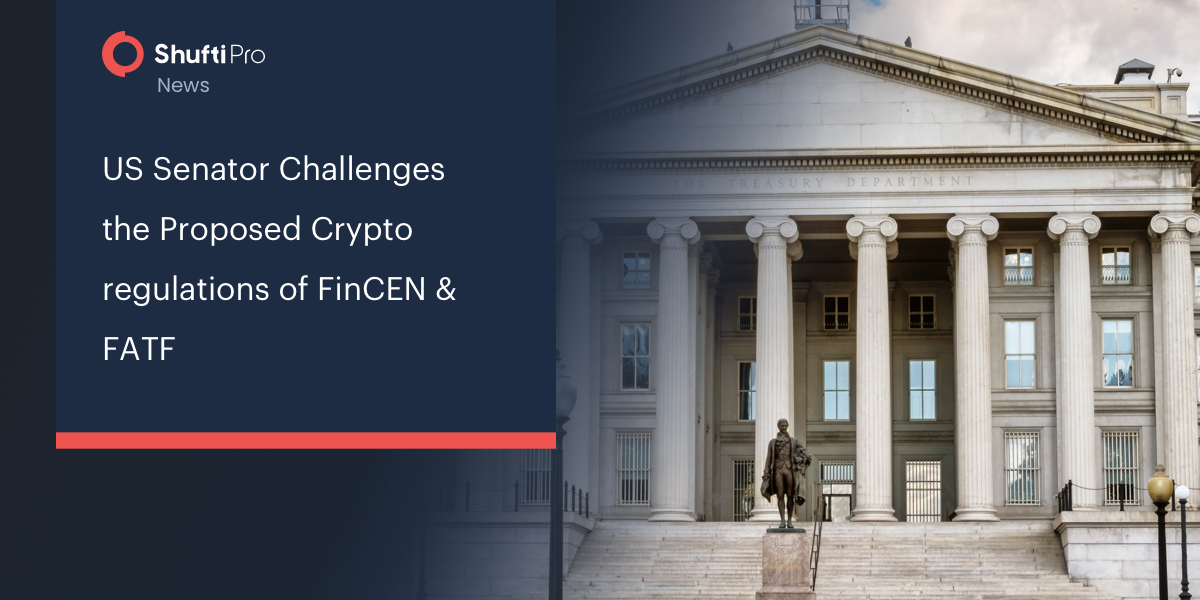News
Pandora Papers Update: Offshore Havens and Money Laundering Scandals Exposed
The Pandora Papers expose 35 world leaders, 300 public officials and 100+ billionaires, thus prov...
 Explore More
Explore More
News
Hong Kong Authorities Warn Unregistered Virtual Assets Platforms May Face Large Fines and Imprisonment
On August 7th, the Hong Kong Securities and Futures Commission (SFC) warned all platforms working...
 Explore More
Explore More
News
Council of Europe Shows Support to Serbian Authorities For Combating Money Laundering
The Council of Europe stays dedicated to showing support to authorities for fighting money-launde...
 Explore More
Explore More
News
Swedbank Fined And Remains Under Investigation by US Authorities
As Danske Bank awaits judgment by US regulators for being involved in Europe’s largest-ever money...
 Explore More
Explore More
News
Russians Turn To Crypto As the West Imposes Financial Sanctions
Data has shown that Russians are turning towards transactions in cryptocurrency as a result of we...
 Explore More
Explore More
News
HEDA Calls for Professional Regulatory Bodies to Sanction Corruption Enablers
The Human and Environmental Development Agenda (HEDA), the leading civic society organization on ...
 Explore More
Explore More
News
FCA Declares £147m Fine on Credit Suisse for Due Diligence Failings
Credit Suisse was fined £147,190,200 for breaching FCA’s Principle 2 and 3 for Businesses as it f...
 Explore More
Explore More
News
Philippines anti-money laundering council demands strict POGO regulations
The Philippines Anti-Money Laundering Council (AMLC) has advised of an “increasing level of threa...
 Explore More
Explore More
News
FATF Removes Malta From gray List of Untrustworthy Financial Jurisdictions
After one year of being included in the FATF grey list, the global action committee has voted Mal...
 Explore More
Explore More
News
HKMA Fines Cathay United Bank’s Hong Kong Branch with HK$11m
HKMA investigated CUBHK for violating the Anti-Money Laundering and Counter-Terrorist Financing O...
 Explore More
Explore More
News
UK Adopts new Methods to Fight Money Laundering Through Sanction Regime
The UK declared a new sanction regime against financial crimes like money laundering. According t...
 Explore More
Explore More
News
South Africa Introduces Biometric Child Registration To Stop ID Theft
The Department of Home Affairs (DHA) in South Africa recently introduced a new method of biometri...
 Explore More
Explore More
News
Fed Board Issues Directives Restricting Member Banks Holding Crypto as Principal
The US Federal Reserve rule cemented the Central bank’s caution about crypto asset activities, pr...
 Explore More
Explore More
News
FirstBank of Nigeria Continues Commitment to Combating Money Laundering
Chief Executive Officer of the First Bank Group of Nigeria Limited, Dr. Adesola Adeduntan, noted ...
 Explore More
Explore More
News
Crypto firms Halt Business in China After an Intense Government Crackdown
Cryptocurrency businesses have stopped their operations after the government led an intense inves...
 Explore More
Explore More
News
BC Money Laundering Inquiry Report Calls for New Law Enforcement Unit
BC has released a money laundering report that carries multiple recommendations and includes the ...
 Explore More
Explore More
News
HEDA Calls for Professional Regulatory Bodies to Sanction Corruption Enablers
The Human and Environmental Development Agenda (HEDA), the leading civic society organization on ...
 Explore More
Explore More
News
EU Freezes $130 Million Worth of Assets Linked to Money Laundering in Lebanon
France, Germany, and Luxembourg have seized the properties and frozen assets worth $130 million l...
 Explore More
Explore More
News
Federal Prosecutors Investigate Trump’s Social Media Company for Money Laundering
Trump’s social media company is reportedly under investigation by federal prosecutors in New York...
 Explore More
Explore More
News
COVID-19: Banks and mobile companies join to block texting scams
The banking and mobile phone industries are declaring advancement in the face of a rise in so-cal...
 Explore More
Explore More
News
Phishing attacks hidden in Google Cloud Services
Cybercriminals are concealing phishing efforts behind legitimate resources like google cloud serv...
 Explore More
Explore More
News
Personal Privacy Concerns Raised over FinCEN’s Proposed Crypto Rules
The advocacy group in their latest comment has disregarded the proposed regulatory requirements b...
 Explore More
Explore More
News
SMS Phishing Scams are Impersonating State Agencies – FTC Warns
FTC issues warning against SMS phishing attacks that are impersonating state workforce agencies t...
 Explore More
Explore More
News
‘Businesses need to brace for Iranian Cyberattacks’ – warns Homeland Security
The news of the assassination of Iranian military commander, Qaem Soleimani, is all over the medi...
 Explore More
Explore More
News
SEC Charges $79 Million Penalties on Broker Companies for Deficiencies in Recordkeeping
The Security and Exchange Commission (SEC) has imposed $79 million worth of penalties on brokerag...
 Explore More
Explore More
News
South Korea FSC Identifies 14 ‘Fake’ Crypto Accounts Held by VASPs
All crypto accounts in South Korea are directed to register under their real names. Third-party b...
 Explore More
Explore More
News
Nigeria Employs New BOR Initiative to be Removed from FATF’s Gray List
A Beneficial Ownership Register (BOR) has been inaugurated by the Corporate Affairs Commission (C...
 Explore More
Explore More
News
UK Finance Sector and Police Stopped £32m Fraud in First Half of 2021
The ‘Banking Protocol’ introduced in 2016 has now helped prevent financial fraud worth £174...
 Explore More
Explore More
News
Shufti Achieves iBeta Level 2 Compliance for Biometric Liveness Detection
London, UK – May 9, 2025 – Shufti has successfully achieved iBeta Level 2 compliance for its biom...
 Explore More
Explore More
News
UK Government Issues New Guidance On Data Collection Related To Self Custody Crypto Wallets
The government of the United Kingdom is issuing new rules on the collection of data for the crypt...
 Explore More
Explore More
News
Australian Federal Police to Establish a Cryptocurrency Unit to Combat Money Laundering
AFP rolled out a dedicated crypto unit to combat monetary scams by fraudsters. According to AFP, ...
 Explore More
Explore More
News
Beware: Vaccine-phishing scams have risen by 500 percent
Vaccine-phishing scams have increased by 530 per cent, as stated by a new study by Unit 42, the P...
 Explore More
Explore More
News
USD 10.4 Billion Paid by Financial Groups in 2020 in Regulatory Fines
Know Your Customer and Anti-money Laundering non-compliance penalties rose 26% this year. Many pr...
 Explore More
Explore More
News
Lawrence man indicted of identity theft found guilty
BOSTON (AP) — A man charged with using another person’s Social Security number to illegally obtai...
 Explore More
Explore More
News
European Commission Removes Morocco From High-Risk Money Laundering Watchlist
On Wednesday, the European Commission disclosed that Morocco was no longer listed on its high-ris...
 Explore More
Explore More
News
NAB and CBA Exposed Over PNG Money Laundering Case
NAB and CBA have been given a “formal warning” instead of criminal charges, as the PNG regulator ...
 Explore More
Explore More
News
FATF Claims Golden Visa Programs Raise Financial Crimes Activities
The international regulatory body, Financial Action Task Force (FATF), reported that Citizenship ...
 Explore More
Explore More
News
Money Laundering Ring Pushed $4bn through 60 HSBC Accounts within 2 Years
60 HSBC accounts were used to launder USD 4.2 billion in Hong Kong.
An investigation carried out...
 Explore More
Explore More
News
FATF Publishes 35 New Indicators Against Trade-based Money Laundering
Financial Action Task Force (FATF) and Egmont group has published a new report on risk-indicators...
 Explore More
Explore More
News
Ransomware attacks three US universities
A ransomware group has successfully stricken three universities within the week. They claim that ...
 Explore More
Explore More
News
Russian Government Bans New Crypto Website for ‘Promoting Money Laundering’
The Russian government has banned the new website Bits.media for allegations of promoting illicit...
 Explore More
Explore More
News
US Senator Challenges the Proposed Crypto Regulations of FinCEN & FATF
Pat Toomey, the US Senator, has requested Treasury Secretary Janet Yellen to “make significant re...
 Explore More
Explore More
News
Danish Gaming Regulator Sanctions Unibet Over AML Violations
Spillemyndigheden, the Danish Gaming Regulatory Authority has sanctioned Unibet for failing to co...
 Explore More
Explore More
News
Two of Singapore’s Banking Giants Involved in Billion-Dollar Money Laundering Case
The two well-known banks in Singapore, Development Bank Singapore (DBS) and Overseas Chinese Bank...
 Explore More
Explore More
News
Saudi Central Bank Instruct Banks to Combat Financial Crimes
According to the Central Bank of Saudi Arab, the fraudulent operations are linked with the money ...
 Explore More
Explore More
News
Hong-Kong Police Crack money-laundering Cartel of Processing HK$119 Million in 2 months
Hong Kong police have rounded up 11 men in a crackdown on a cross-border syndicate with a suspect...
 Explore More
Explore More
News
UK’s Financial Watchdog Goes Real-time to Catch Online Criminals
The FCA is sweeping the internet on a day-to-day basis to pull out cybercriminals, as the number ...
 Explore More
Explore More
News
Biden Going After Crypto Tax Evaders with Data Sharing Initiative
President Biden’s administration is proposing global cooperation to curb the threat of crypto-rel...
 Explore More
Explore More
News
IPEC to Collaborate With FIU to Improve AML Framework
IPEC to collaborate with FIU to identify terrorist financing and money laundering risks that are ...
 Explore More
Explore More
News
Japan FSA, Central Bank to Assess FI’s AML, Anti-fraud Measures
Reports have revealed that Japan’s FSA and BOJ are seeking to better understand whether the curre...
 Explore More
Explore More
News
The Nigerian Bar Association (NBA) Introduces Anti-Terrorist Financing, Anti-Money Laundering Laws
Lawyers in Nigeria are being instructed to follow anti-money laundering and terrorist financing l...
 Explore More
Explore More
News
Centra Tech’s Operator Sentenced a Year in Prison for ICO Fraud
Robert Farkas has been arrested and charged with the lightest sentenced felony for his part in Ce...
 Explore More
Explore More
News
FinCEN and Federal Reserve Board Reducing the Bar for International Transactions
The FinCEN and Federal Reserve Board are planning to reduce the threshold for international trans...
 Explore More
Explore More
News
Real Estate Firm LeHomes Realty Fined $282K for AML Compliance Failure
Real Estate Firm LeHomes Realty has been fined $282K for AML compliance failure. The brokerage co...
 Explore More
Explore More
News
Japan’s FSA Deems Crypto Dealers Necessary for Ongoing AML Efforts
Japan’s federal regulatory authority FSA lays ground for anti money laundering requirements for c...
 Explore More
Explore More
News
FATF to “Gray List” UAE for AML Failings
The Financial Action Task Force (FATF) is considering adding the United Arab Emirates to its gray...
 Explore More
Explore More
News
BANGKO SENTRAL ng Pilipinas (BSP) Cancels Licences of Two Firms
THE BANGKO SENTRAL ng Pilipinas (BSP) has cancelled two virtual asset service provider (VASP) fir...
 Explore More
Explore More
News
US Regulators Worried about the Rise in Synthetic Identity Fraud
Synthetic identity fraud, a financial crime in the USA, is on the rise. This has concerned the Un...
 Explore More
Explore More
News
CSSF Imposed a €226,000 Fine on Maitland Over AML Compliance Failure
Maitland Luxembourg SA received a penalty of €226,000 over anti-money laundering and customer due...
 Explore More
Explore More
News
Online Gaming Used by Criminals to Groom Minors into Drug Mules
Criminal networks are now applying the use of online video game, Fortnite, to groom minors around...
 Explore More
Explore More
News
UAE Charges Six Companies with Dh3.2 Million for AML/CTF Violations
The UAE has fined six companies Dh3.2 million for failing to comply with Anti-Money Laundering an...
 Explore More
Explore More
News
Vending machines can now be operated with Bitcoins
Vending machines used by key Asia-Pacific soft-drink bottler and distributor Coca-Cola Amatil wil...
 Explore More
Explore More
News
Cambodia and China Strengthen Ties to Combat Illegal Online Gambling and Scams
China’s Premier Li Keqiang and Cambodia’s PM Hun Sen have given a green signal to strengthen thei...
 Explore More
Explore More
News
2020 Election is coming up! Facebook bans deepfakes
2020 is up and the United States’ presidential election campaign is underway. Prior to these elec...
 Explore More
Explore More
News
Founders of US Crypto Firm Charged with Assisting North Korean Hacking Group in Laundering Money
Two co-founders of the cryptocurrency firm Tornado Cash, Roman Semenov and Roman Storm, were char...
 Explore More
Explore More
News
Governor Bank of France to Propose Licencing for Crypto Firms
François Villeroy de Galhau, the Governor Bank of France, has passed more stringent regulatory pr...
 Explore More
Explore More
News
Kuwait’s Ministry of Social Affairs to Amend the Executive Law to Fight Money Laundering and Terrorism
Kuwait’s Ministry of Social Affairs is currently reviewing a proposal to amend the executive regu...
 Explore More
Explore More
News
BSP Warns Banks Against Auto Loan Fraud
According to BSP, organized crime groups are using fake identities to sell vehicles under fake li...
 Explore More
Explore More
News
Pandora Papers Highlight ‘Gatekeepers’ of Black Money, says EU Financial Watchdog
The new report of MONEYVAL offers a diminishing rebuke across European governments that are unabl...
 Explore More
Explore More
News
HEDA Calls for Professional Regulatory Bodies to Sanction Corruption Enablers
The Human and Environmental Development Agenda (HEDA), the leading civic society organization on ...
 Explore More
Explore More
News
FCA Bans Crypto-Related Investments in the UK
Financial Conduct Authority- FCA had proposed a ban on crypto-related investments in October 2020...
 Explore More
Explore More
News
Banks Warned about Cryptocurrency Risk Exposure by FinCEN Director
During a virtual anti-money laundering conference by ACAMS in Las Vegas earlier this week, FinCEN...
 Explore More
Explore More










































































